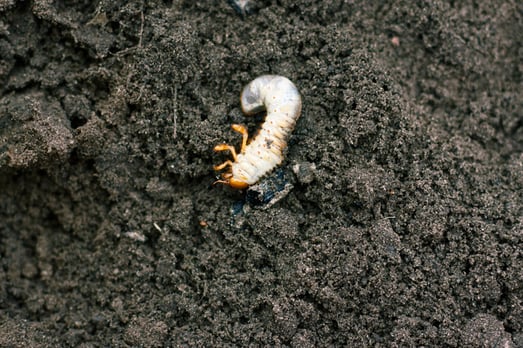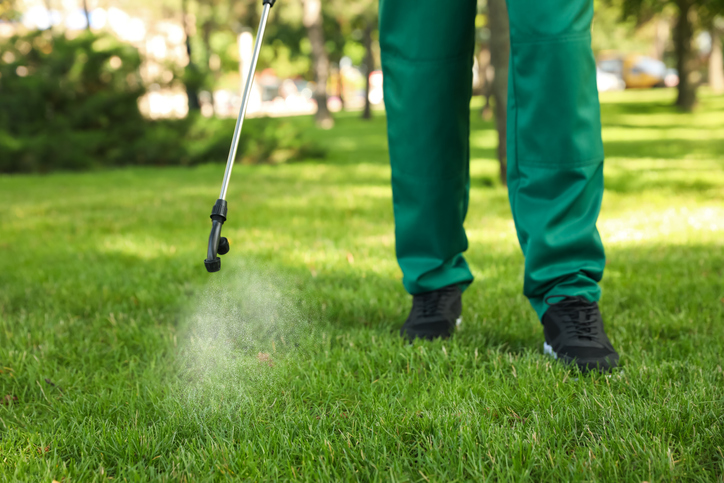If you’re looking for the best lawn insect killer, you probably already have patches of dead grass in your yard. It can be frustrating looking out the window and seeing patches of brown and having no idea where they’re coming from. Chances are you have some lawn-destroying insects feeding off your blades.
Lawn-eating insects can be broken down into two major groups: surface-feeding and subsurface. Surface-feeding bugs are easy to spot because you’ll see them in your grass. Subsurface insects feed off the roots of your grass, so they’re a lot tougher to find.
Whatever the case may be for your lawn, let’s take a look at these lawn-loving bugs and the best lawn insect killer you can use to save your grass.
Types of Lawn-Destroying Insects
Before we get into ways to control lawn insects and pests, let’s get to know them a little better. Here are some of the insects that could be giving you issues.
- Chinch bugs can damage your lawn in warm and dry conditions. Their damage is most often seen in July and August in central Michigan and is often attributed to some other agent.
- Sod webworms are tiny, wheat-colored moths that are most obvious when you are mowing your lawn. If you see small moths flying in a zig-zag pattern around your lawnmower, those are sod webworms.
- Grubs (or June Bugs) feed on the roots of your grass during the spring and early summer. This causes large patches of your grass to turn brown and die. If you don’t check it out and do something about it, these patches can become permanent patches of dirt for years to come.
- Moles and grubs often go hand in hand. If you have a grub problem then hungry moles can’t be too far behind. As moles feed, they tunnel under the surface of the soil, which disturbs the roots of your grass.
- White grubs are the larvae of various species of scarab beetles. They cause damage by severing the root system of grass plants, preventing the plants from drawing enough water from the soil.
You should also be on the lookout for cutworms and armyworms. Armyworms were a big problem for a lot of people last summer. And most species of cutworms feed on the ground. They’ll chew the stems of grass blades and destroy them.
Lawn Insect Killers
Once you determine that you have a lawn insect problem, it’s good to know that there are things you can do to control your problems. It starts by deciding how you’d like to eliminate your lawn killers. You can use either chemical insecticides or natural insecticides.
- Chemical insecticides include ovicides and larvicides that are used against insect eggs and larvae.
- Natural insecticides use only natural components to kill bugs.
Both chemical and natural insecticides can be effective against lawn-eating insects.
Lush Lawn Can Help
But the best lawn insect killer doesn’t necessarily depend on the active ingredient or type of application. It often depends on the type of lawn insect.
For instance, granular insecticides are not as effective against chinch bugs as liquid sprays. Or it could be a lack of nutrients making your lawn a prime target for attacks from insects, grubs, and other pests. That’s why having a professional team of lawn-saving professionals on your side always helps.
Lush Lawn’s experts will put together a plan that is customized to your yard that is safer for you, your family, and the environment.
If you’re interested in learning more about how our team can keep your lawn thriving all summer long and eliminate the worry of lawn-killing bugs, contact us today.
